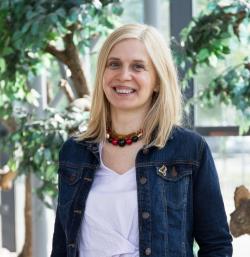Reshaping the world : Mapping opportunity with AI disruption
Jaipuria Institute of Management noida/Open Health Network/Mykolas Romeris University
Session 190
AI Tools and Digital Innovations for Education, Science, Management and Health: Bridging Tradition and Transformation
This session explores how AI tools and digital innovations are transforming education by enhancing intercultural communication, preserving traditions, and fostering social change in the digital era. As globalization accelerates, diverse cultural interactions require new approaches that integrate technological advancements with traditional educational practices.
We will critically examine the evolving role of Artificial Intelligence (AI) in education, highlighting both its transformative potential and its implications for traditional pedagogical practices. Focusing on the integration of generative AI, we will explore how this technology can reshape teaching, learning, and educational policy across various levels, from high schools to broader educational systems by presenting projects:
“AI Tools and Digital Innovations for Education: Bridging Tradition and Transformation” Breakthrough in Educational Research Project No. 10-044-P-0001: "A model of technology-based self-government teaching in gymnasium classes for educational policy formation (e-Savivaldis)" P-EDU-23-5 and “Inclusive education in full-day school" P-EDU-23-3 Research Council of Lithuania, Mykolas Romeris University
“Transdisciplinary approaches in Humanities through integrating STEM education in Humanities curricula” STEM Skills for Humanities, ERASMUS+ K220 project, no-2023-1-IT02-KA220-HED-000164647
We will also examine how the open science movement and big data analytics have accelerated research collaboration, but disparities in access to digital research tools persist. Strengthening global research networks and ensuring open-access scientific resources will be crucial for future innovation. We will also discuss that while digital platforms have increased access to diverse cultural content, linguistic dominance by a few major languages continues to marginalize minority languages and local content. Policies that support multilingual digital environments, content localization, and AI-driven translation technologies are essential to preserving cultural diversity in the digital age. The following projects reflecting the developments:
“Knowledge Graphs for Open Knowledge, innovative businesses and social value” CA23147 - Global Network on Large-Scale, Cross-domain and Multilingual Open Knowledge Graphs (GOBLIN)
"Reconciling language diversity with rapid progress in language Technology” CA21167 - Universality, diversity and idiosyncrasy in language technology (UniDive)
Access to reliable, context-specific knowledge isn’t just an educational issue—it’s a human-rights imperative in global health.
Generative AI shatters traditional barriers: it can personalize medical training, translate underserved languages, and swiftly surface evidence-based protocols across borders. Yet without robust open-access frameworks, it risks widening the digital health divide—favoring well‑resourced systems over those already marginalized.
That’s where Open Health Network steps in—with open‑source GenAI pipelines, multilingual knowledge‑graphs, and real‑time data synthesis tools built for frontline use in clinics, rural hospitals, and policy labs. They're not just coding models—they’re designing systems that elevate global equity.
Critically, we need to challenge the notion that "more data = more fairness." Instead, let’s demand knowledge justice: inclusivity built into every GenAI layer—from model training to language support.
Key provocations for the room:
Can self‑sustaining, community‑driven GenAI curricula help low‑resource nations leapfrog into next‑gen healthcare?
Will investment in open infrastructures—like the Open Health Network's community‑led GenAI stacks—unlock real access, or simply replicate structural inequities?
Are we ready to hold GenAI systems to account on two fronts: intercultural fluency and public‑health outcomes?






-
 C3. Access to information and knowledge
C3. Access to information and knowledge
-
 C5. Building confidence and security in use of ICTs
C5. Building confidence and security in use of ICTs
-
 C7. ICT applications: benefits in all aspects of life — E-business
C7. ICT applications: benefits in all aspects of life — E-business
-
 C7. ICT applications: benefits in all aspects of life — E-learning
C7. ICT applications: benefits in all aspects of life — E-learning
-
 C7. ICT applications: benefits in all aspects of life — E-health
C7. ICT applications: benefits in all aspects of life — E-health
AI-powered tools are reshaping how educators engage with students, creating personalized and inclusive learning experiences. By leveraging machine learning, natural language processing, and adaptive learning platforms, these technologies help bridge cultural and linguistic gaps, making education more accessible across diverse communities. Additionally, digital innovations such as virtual reality (VR) and augmented reality (AR) provide immersive learning environments that deepen cultural understanding and engagement.
One of the major challenges in ensuring equitable access to information is the persistence of language barriers and the dominance of a few major languages in digital content. While open-access initiatives have expanded, many populations still struggle to find relevant and localized content in their native languages. This lack of linguistic diversity in the digital space limits the potential of ICTs in education, governance, and civic engagement.
Misinformation and disinformation have also emerged as significant obstacles to the free flow of reliable information. The rise of digital platforms and social media has made it easier for false information to spread rapidly, undermining trust in institutions and exacerbating social divisions. Without proper regulatory frameworks and media literacy initiatives, access to information can become a tool for manipulation rather than empowerment.
We must emphasize not just access but also the quality, accuracy, and inclusivity of digital information. Strengthening open-access policies, supporting multilingual digital content, and developing AI-driven content verification mechanisms will be essential in addressing these challenges.
-
 Goal 3: Ensure healthy lives and promote well-being for all
Goal 3: Ensure healthy lives and promote well-being for all
-
 Goal 4: Ensure inclusive and equitable quality education and promote lifelong learning opportunities for all
Goal 4: Ensure inclusive and equitable quality education and promote lifelong learning opportunities for all
The session will examine how AI can enhance traditional teaching methods while ensuring that cultural values remain integral to education. Case studies will illustrate how AI-driven platforms are being used to support multilingual education, facilitate cross-cultural collaboration, and address pressing global challenges like migration, climate change, and social inequality.
Digital learning platforms and open educational resources have expanded access to education, but disparities in infrastructure, affordability, and digital literacy hinder universal adoption. Future efforts must emphasize digital pedagogy training, improved connectivity in rural areas, and AI-driven personalized learning.
GOBLIN COST Action CA23147 https://www.cost.eu/actions/CA23147/
UniDive COST CA21167 Action https://www.cost.eu/actions/CA21167/
National Breakthrough Project in the Field of Educational Sciences in Lithuania https://lmt.lrv.lt/en/educational-reseach/
"A model of technology-based self-government teaching in gymnasium classes for educational policy formation" P-EDU-23-5
https://www.mruni.eu/project-breakthrough-in-educational-research-no-10-044-p-0001-edu-project-a-model-of-technology-based-self-directed-learning-in-high-school-for-educational-policymaking/
https://www.mruni.eu/edukaciniu-tyrimu-proverzis-nr-10-044-p-000-tyrimas-technologijomis-gristo-savivaldzio-mokymosi-gimnazijos-klasese-modelis-svietimo-politikos-formavimui-e-savivaldis-nr/
https://www.mruni.eu/project-breakthrough-in-educational-research-no-10-044-p-0001-edu-project-inclusive-education-in-full-day-schools-no-p-edu-23-3/
Inclusive education in full-day school" P-EDU-23-3 https://www.mruni.eu/edukaciniu-tyrimu-proverzis-nr-10-044-p-0001/
"STEM Skills for Humanities" https://stem4humanities.eu/